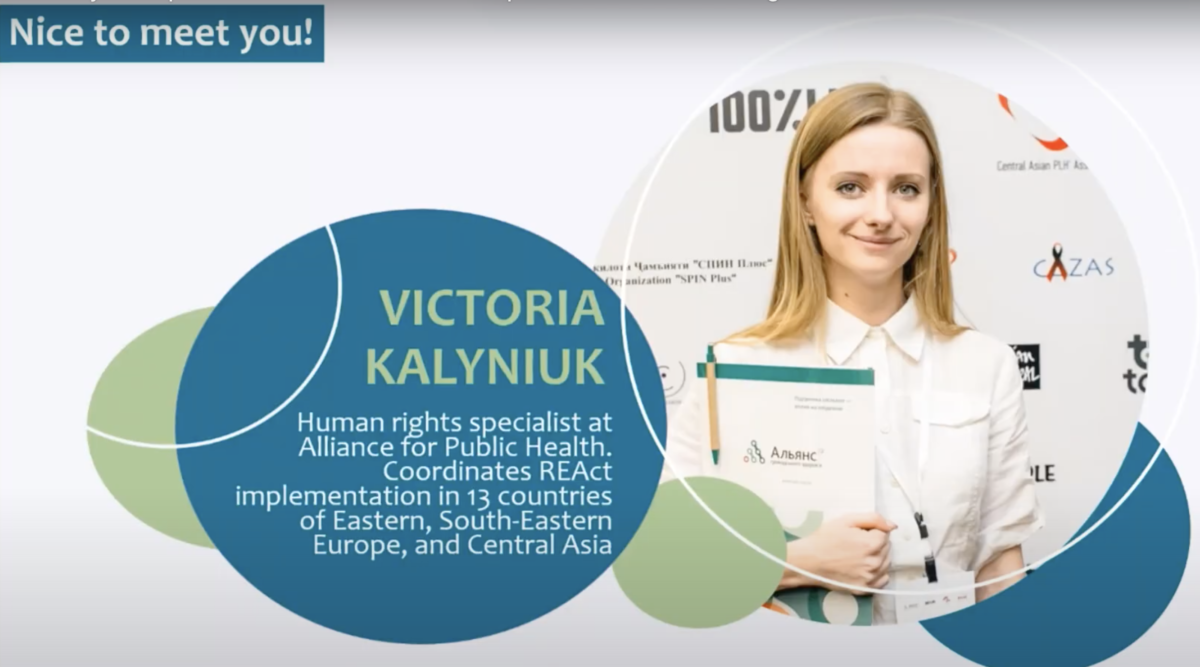On the December, 1 Frontline AIDS hold a webinar for a group of partners from Uganda, Nigeria, South Africa, Zimbabwe, and Namibia that received funding in 2022 to pilot emergency response mechanisms in their countries/regions. REAct was invited on this event as well to share its real-life best examples of advocacy implementation in the EECA region, in particular, changes in human rights system and improving of access to HIV services for key group populations.
To date, more then 13 thousand cases have been registered through the REAct system and in this process involved 174 NGOs and 363 REActors all over the EECA region. “Our tool implemented on different levels. On individual one database has to be followed up with some hotline services or emergency phone numbers, because our clients need an immediate support.” – says Victoria Kalyniuk, REAct Coordinator in EECA region. “Then letters, statements and court cases finally. However, the number of these cases is low, unfortunately, due to stigma and discrimination. Clients are not ready to go to the court, they do not trust system. But all the time when REActors talk to the representatives of police, medical or government structures, they influence on attitude to the key groups. That’s also an advocacy method.”
Participants of the webinar expressed an interest in learning more about tool implementation on local and national levels as well. Victoria shares some examples and best practices in region, e.g., in Tajikistan people, who live with HIV face with stigma and discrimination on the domestic level (relatives, partners etc.). REActors in this country choose the way to talk with perpetrators to explain that HIV can be treated and people are not dangerous. Another one good practice on the national level was in 2020 in Moldova. REActors found that there was a discrimination of HIV positive pregnant women in maternity hospital. They were informed that all cases were in the same hospital, from the same medical staff. After the dialog with the head management of that institution, the question was closed successfully.
“There was a great case in Kyrgyzstan” – shares Victoria. “We heard that the police hunts on the clients of OST sites. It became a big barrier for that people, they were just afraid to go there and take therapy. As a result, REActors prepared a letter to a Minister of Internal Affairs and got a response that the situation will be under control on the high level and an internal investigation will be held. That letter was printed and distributed through OST sites and clients. Each time, when the person was obtained by a policeman, he or she showed its copy in the way, like: «Are you sure that you want to do that, because your management will know about it very soon». It helped a lot!
Speaking about best practices on a national level, you should remember that work with stakeholders and presenting your data is must! We collaborate with NGOs, governments, prepare publications and every year implement a new advocacy campaign. Definitely, it takes time to make changes and seems as a top of iceberg, but keep fight for people’s mind! It works!”


